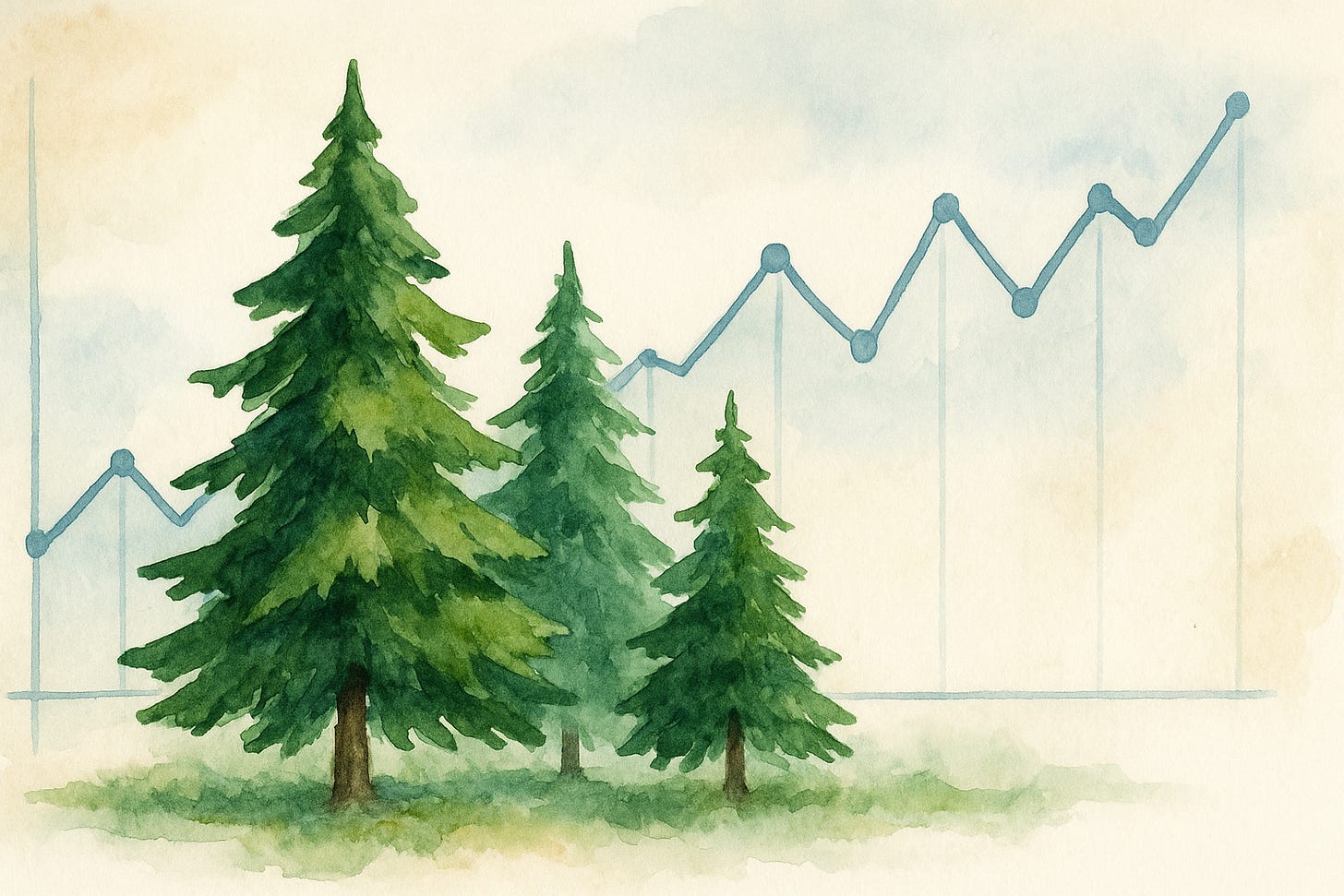Why Great SEO Needs More Than Data
Hello Riddlers!
Today's newsletter sponsor is myself 😄 The course is on sale for 25% till Dec 31 2025! Just use this Coupon Code: BLACK2025
--——> Check out the course here <--------
PSSSSTTTT: I’m also collaborating with niche SEO newsletters through a Newsletter Exchange initiative! This time, I’m featuring Nikki Halliwell’s “Tech SEO Tips”, a great newsletter that shares weekly technical SEO insights. Go check it out here!
When “Data-Driven” Misses the Point
Nothing is cooler these days than saying you're "data driven" right?
But what if I told you that data is not enough? In fact, looking at data only you risk missing the forest for the trees? 🌲🌳🌲🌳🌲🌳
Data is a tricky thing you know, for one, because you'll never have ALL THE DATA about everything. There will always be things that were not measured, could not be measured or just didn't show up on the spreadsheet!
True Story
The TTC (Toronto Transit Commission) once hired a data scientist to figure out why there was a spike in customer complaints on certain days. He analyzed the data for weeks with no success, until one rainy afternoon, he stepped off a bus straight into a puddle and got soaked 😄 That was his Apple-meets-Newton moment 🍎💡 He decided to pull in weather data, and suddenly it all made sense. On days with unexpected extreme weather, complaints surged!
Do you see what happened here and how your traditional data can be "not enough" 🤷
My aha data moment
A very common discussion we have in SEO is should those keywords be targeted by the same page or separate pages.
Let's say:
"Movie reviews and bloopers" has search volume of 3000
"Movie reviews" has search volume of 1000
"Movie bloopers" has search volume of 100
Based on the above data, would you create one "movie reviews and bloopers" page? or two separate pages: "movie reviews" page and "movie bloopers" page?
My first thoughts were let's create one page, because as you can see, the keyword has higher search volume, and this page can capture smaller search volumes for the other two keywords anyways, right?
two birds with one stone, or so it felt 😄
Here's what data does not tell you:
🎬The people looking for "movie reviews" only, do not want to see bloopers, because it can spoil the movie for them 😄
So, in this case, you'll still need to create two separate pages because while data suggested one page, context demanded two!
Judge a man by his questions
I never understood this quote:
Judge a man by his questions rather than by his answers. ~ Voltaire
But I think now it makes a lot of sense.
To be great in SEO, you should definitely look at data.
But you should also ask good questions, and find the things the data does not tell you.
Our traditional SEO data is about:
clicks
impressions
rankings
search volume
And these are great metrics, but there are so many things that these metrics miss. Like why do users make the choices they do, do users click on a results just because they're is ranking higher for example? did users bounce off our website, just because our website is a bit slower than others? and so on...
And That’s a Wrap (Almost 😄)
A good SEO will rely on data to make decisions, but a great SEO will combine that with intuition, asking more questions and general curiosity about users!
That's that for today folks and see you next newsletter!
Support the SEO Riddler!
Sign up for my newsletter if you're not already.
Share the newsletter and invite your friends to signup. Help me reach 2k signups by end of 2025 please 🙂
Provide feedback on how I can make this newsletter better!!!
If you're an SEO tool or an SEO service provider, consider sponsoring my newsletter. I'm also open to other partnership ideas as well.
Disclaimer: LLMs were used to assist in wording and phrasing this blog.

